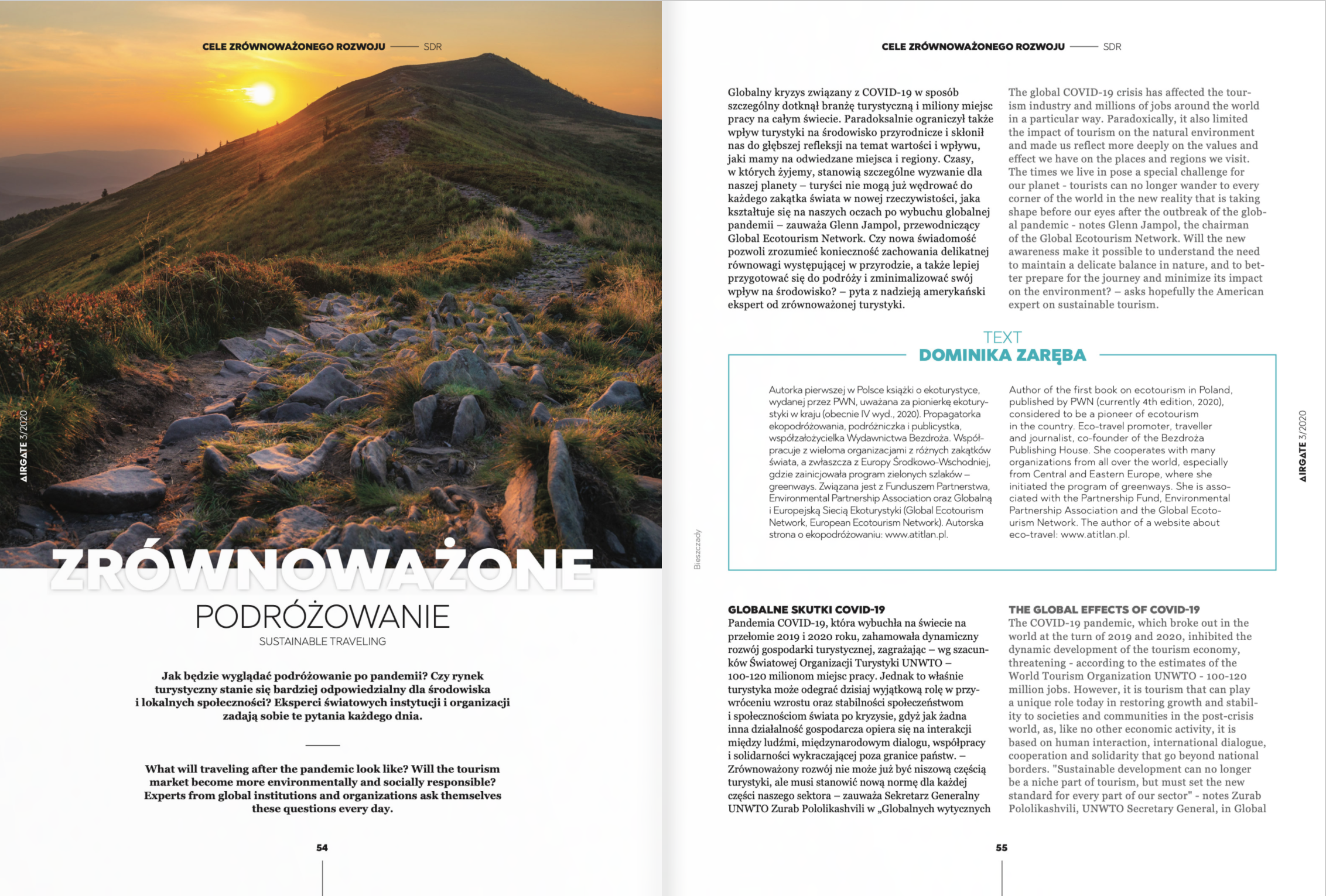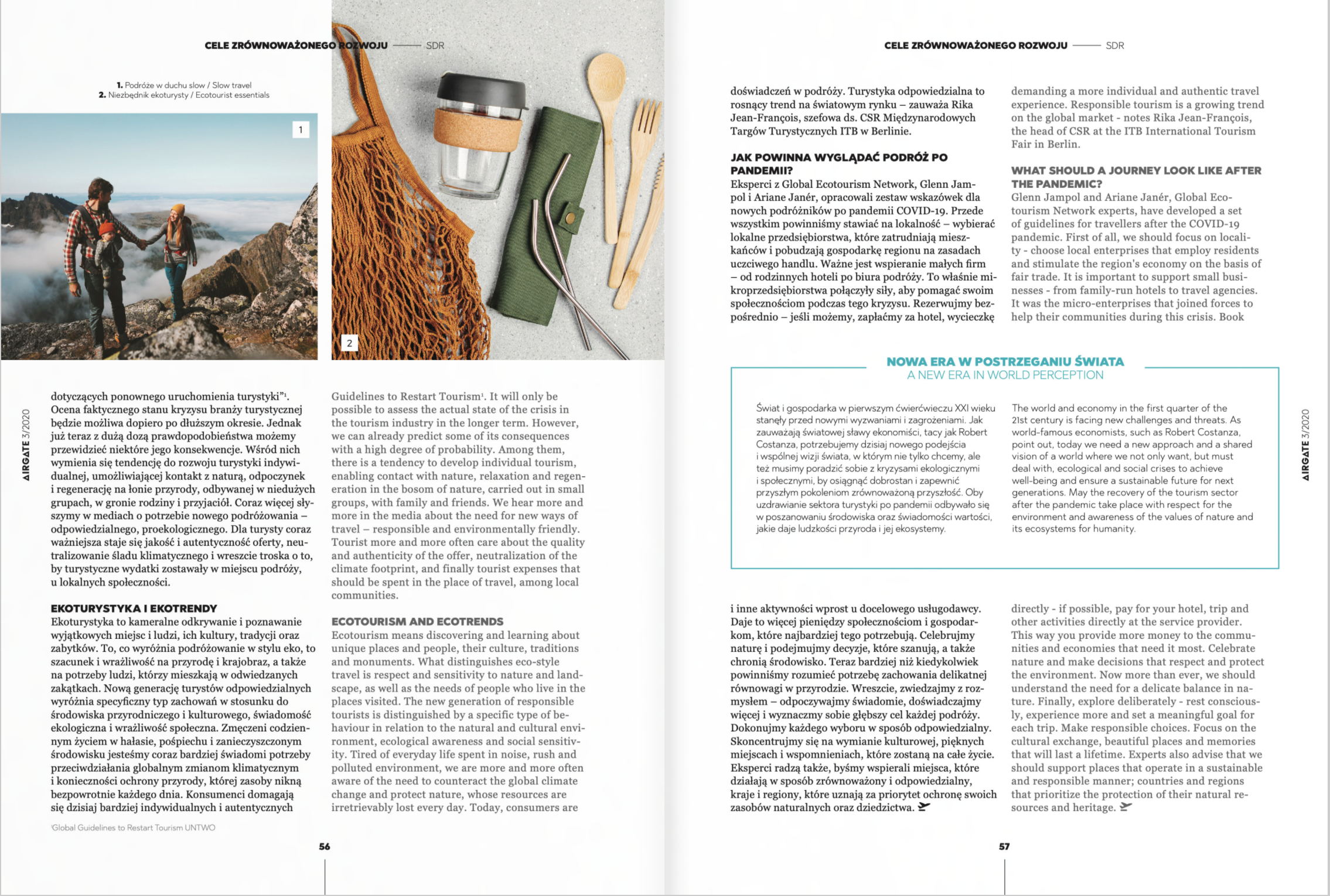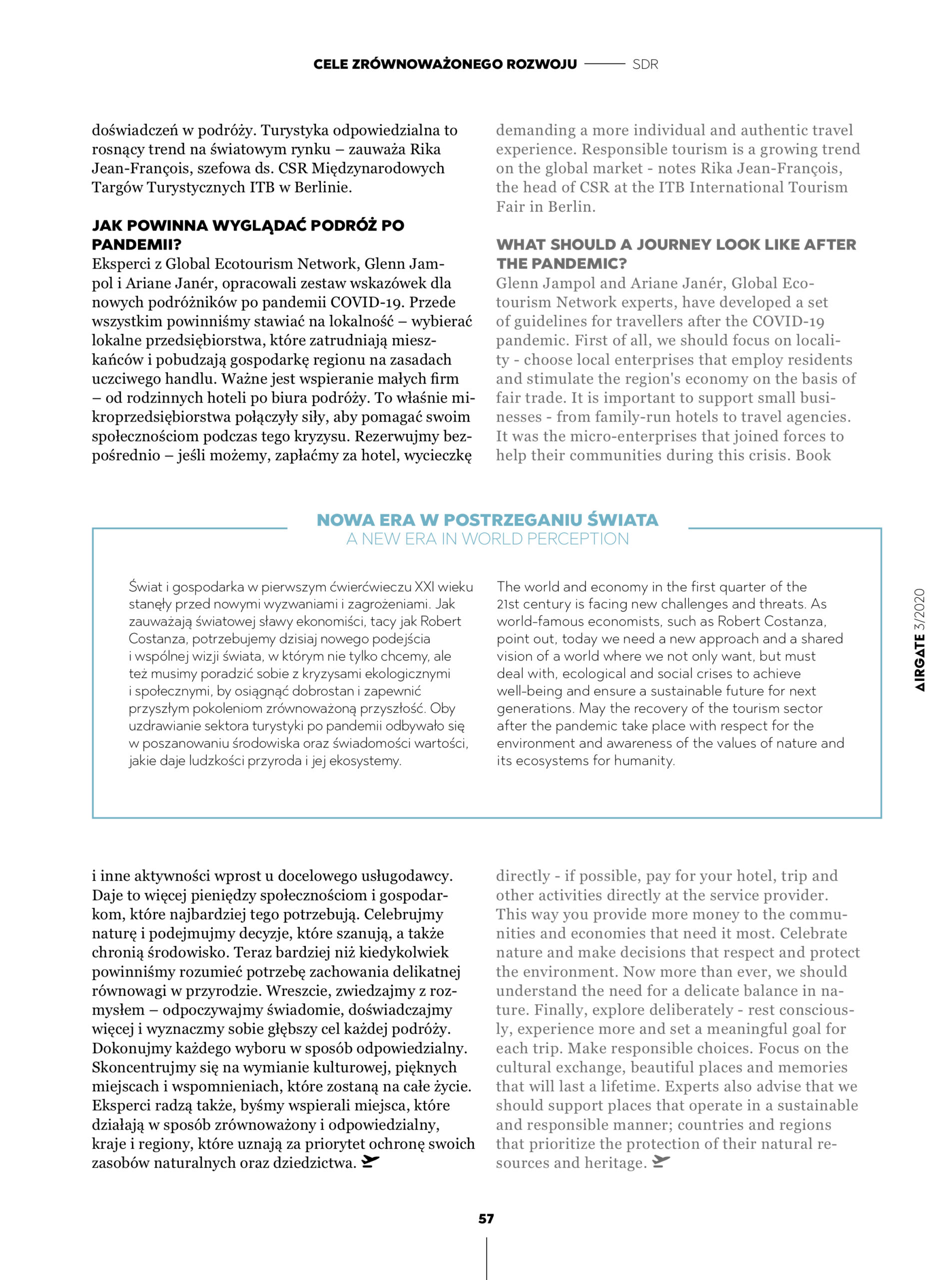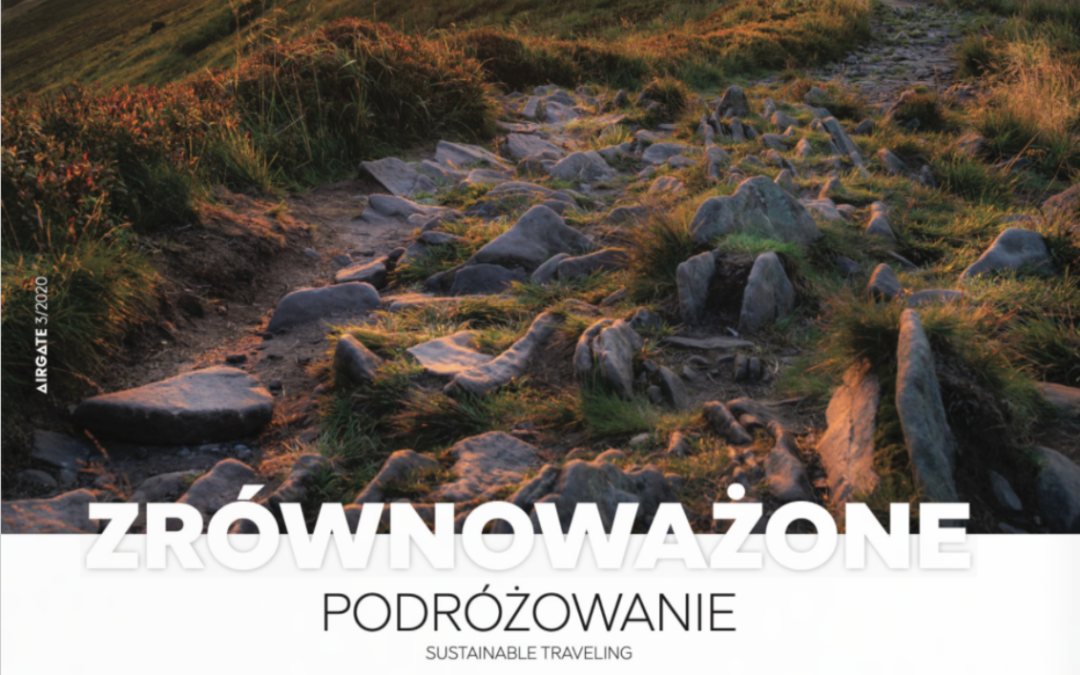What will traveling after the pandemic look like? Will the tourism market become more environmentally and socially responsible? Experts from global institutions and organizations ask themselves these questions every day.
by Dominika Zaręba (for „Airgate Magazine”, 2020)
Sustainable traveling
The global COVID-19 crisis has affected the tourism industry and millions of jobs around the world in a particular way. Paradoxically, it also limited the impact of tourism on the natural environment and made us reflect more deeply on the values and effect we have on the places and regions we visit. The times we live in pose a special challenge for our planet – tourists can no longer wander to every corner of the world in the new reality that is taking shape before our eyes after the outbreak of the global pandemic – notes Glenn Jampol, the chairman of the Global Ecotourism Network. Will the new awareness make it possible to understand the need to maintain a delicate balance in nature, and to better prepare for the journey and minimize its impact on the environment? – asks hopefully the American expert on sustainable tourism.

The global effects of COVID-19
The COVID-19 pandemic, which broke out in the world at the turn of 2019 and 2020, inhibited the dynamic development of the tourism economy, threatening – according to the estimates of the World Tourism Organization UNWTO – 100-120 million jobs.
However, it is tourism that can play a unique role today in restoring growth and stability to societies and communities in the post-crisis world, as, like no other economic activity, it is based on human interaction, international dialogue, cooperation and solidarity that go beyond national borders. “Sustainable development can no longer be a niche part of tourism, but must set the new standard for every part of our sector” – notes Zurab Pololikashvili, UNWTO Secretary General, in Global Guidelines to Restart Tourism 1. It will only be possible to assess the actual state of the crisis in the tourism industry in the longer term. However, we can already predict some of its consequences with a high degree of probability. Among them, there is a tendency to develop individual tourism, enabling contact with nature, relaxation and regeneration in the bosom of nature, carried out in small groups, with family and friends. We hear more and more in the media about the need for new ways of travel – responsible and environmentally friendly.
Tourist more and more often care about the quality and authenticity of the offer, neutralization of the climate footprint, and finally tourist expenses that should be spent in the place of travel, among local communities.

Ecotourism and ecotrends
Ecotourism means discovering and learning about unique places and people, their culture, traditions and monuments. What distinguishes eco-style travel is respect and sensitivity to nature and landscape, as well as the needs of people who live in the places visited. The new generation of responsible tourists is distinguished by a specific type of behaviour in relation to the natural and cultural environment, ecological awareness and social sensitivity. Tired of everyday life spent in noise, rush and polluted environment, we are more and more often aware of the need to counteract the global climate change and protect nature, whose resources are irretrievably lost every day. Today, consumers are demanding a more individual and authentic travel experience. Responsible tourism is a growing trend on the global market – notes Rika Jean-François, the head of CSR at the ITB International Tourism Fair in Berlin.
What should a journey look like after the pandemic?
Glenn Jampol and Ariane Janér, Global Ecotourism Network experts, have developed a set of guidelines for travellers after the COV ID-19 pandemic. First of all, we should focus on locality – choose local enterprises that employ residents and stimulate the region’s economy on the basis of fair trade. It is important to support small businesses – from family-run hotels to travel agencies. It was the micro-enterprises that joined forces to help their communities during this crisis. Book directly – if possible, pay for your hotel, trip and other activities directly at the service provider. This way you provide more money to the communities and economies that need it most. Celebrate nature and make decisions that respect and protect the environment. Now more than ever, we should understand the need for a delicate balance in nature. Finally, explore deliberately – rest consciously, experience more and set a meaningful goal for each trip. Make responsible choices. Focus on the cultural exchange, beautiful places and memories that will last a lifetime. Experts also advise that we should support places that operate in a sustainable and responsible manner; countries and regions that prioritize the protection of their natural resources and heritage.

A new era in world perception
The world and economy in the first quarter of the 21st century is facing new challenges and threats. As world-famous economists, such as Robert Costanza, point out, today we need a new approach and a shared vision of a world where we not only want, but must deal with, ecological and social crises to achieve well-being and ensure a sustainable future for next generations. May the recovery of the tourism sector after the pandemic take place with respect for the environment and awareness of the values of nature and its ecosystems for humanity.
References:
Costanza R., Kubiszewski I., Fioramonti L., Grasso M., Twenty years of ecosystem services: How far have we come and how far do we still need to go?, Ecosystem services, 2017.
Jampol G., Janér A., World, Interrupted, Global Ecotourism Network, 2020.
The Case for Responsible Travel: Trends and Statistics, CREST Center for Responsible Travel, Washington D.C. 2017, 2018, 2019, 2020.
Zaręba Dominika, „Ekoturystyka”, Wyd. Naukowe PWN, 4th edition, Warszawa 2020.
Own research and inteviews with experts.

Article published in the AIRGATE, Krakow Airport Magazine, no 3/2020
translation from Polish – Joanna Sabiniewicz

